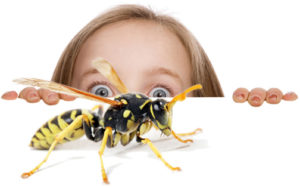If you need to control pests in your home or garage, here are some safety tips on use of household pest chemicals to follow in order to help prevent poisoning…

1) One of the chief ways to ensure household safety and prevent poisoning is to make sure that the exposure is only what is needed to eliminate pests, and that it does not affect any humans or pets. To that end, avoid applying pesticides more often than recommended. You do not need preventive, repeat uses. A better preventive way to get rid of pests is to eliminate conditions where they breed or to which they are attracted.
2) The person applying the pesticide should also limit exposure as much as possible. Wear gloves always, masks or goggles if necessary to prevent poisoning.
3) Ventilate the area that needs to be sprayed. Open doors and windows during the process.
4) Prevent poisoning by keeping any pesticide residues, bait, or traps where children and pets cannot reach them.
5) Remember that household safety includes environmental safety. Don’t pour leftover pesticides down the drain, empty on the lawn, or leave in the garbage. It may contaminate the municipal drinking water or the earth. Your town can tell you the procedures for dealing with hazardous waste.
There are also ways to avoid using pesticides with harsh chemicals. If your pest problem is cockroaches, ants, or silverfish, for example, boric acid will work. If sprinkled along the floor molding, cracks, and crevices, the insects will crawl across it, and boric acid will slowly poison them. Boric acid is not toxic to humans, so is safer than many pesticides.
Several organizations are involved in transitioning to nontoxic pesticides. See www.beyondpesticides.org for details.







